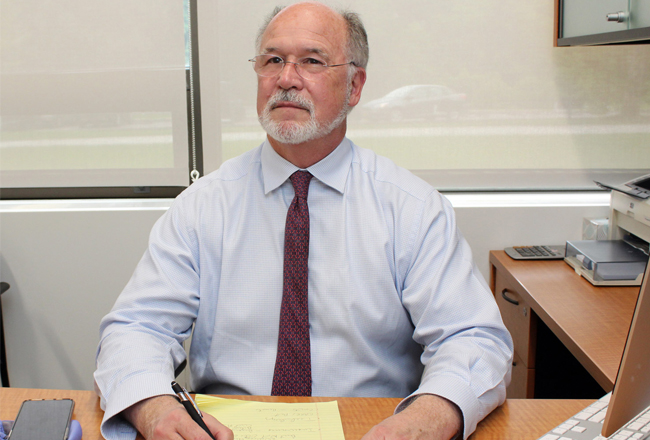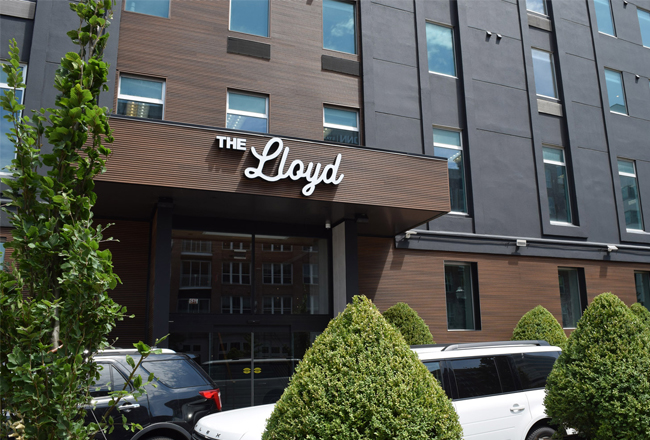A founding member of the law firm Smith Buss & Jacobs LLP, which has offices in Yonkers, Manhattan and Garden City, said that as businesses reopen during the Covid-19 recovery they need to pay special attention to their employees.
“You need to make sure that they”™re healthy and you need to make sure that there”™s a sense that you as an employer have their best interests at heart. However, you will find that there are going to be circumstances all over where there”™s the potential for liability,” Jeffrey Buss told the Business Journal. “There are quite a few state and federal … New York City employment laws that you need to be very sensitive to in terms of whether you can compel somebody to come to work.”
Buss”™ firm has 26 attorneys and has been operating since 1992.
“We do the whole gamut of business, real estate, we also do a lot of real estate development, co-op work, employment work and a lot of litigation,” he said. “I”™ve had a lot of experience litigating and developing, actually, public health plans for Legionella. I”™ve had a number of clients and we developed actual protocols that are adopted on the national level for how to deal with a Legionella outbreak.”

Legionella bacteria are responsible for so-called Legionnaires”™ Disease, a serious type of pneumonia that frequently is fatal.
“This virus, you can”™t see it, you can”™t smell it, you can”™t taste it,” Buss said. “If you think about that from the concept of evidence as an attorney trying to prove a case it”™s almost impossible to determine where that came from.”
Buss said that Covid-19 has put a focus on often-overlooked pandemic and public health law.
“We”™re repeating ourselves over and over again in terms of quarantine, isolation, segregation procedures,” Buss said. “There were early court cases reported on the bubonic plague. There were cases more recently involving Ebola. Most recently in New York there were cases with measles vaccination. These were all circumstances where public health jumped to the forefront and courts needed to jump in and figure out how to structure the law.”
“Covid-19 has actually been a very exciting and interesting aspect for us as a law firm,” Buss said. “We”™re actually busier than we were before Covid-19, in part because of all the businesses that are struggling to adopt policies and procedures that protect the health and safety of employees and their customers and still be able to make a profit.”
Buss predicted that one result of Covid-19 will be an increase in litigation and suggests, “A lot of it is going to be frivolous maybe, but you don”™t want to be caught up in someone saying, ”˜I was forced to go to work and then I got sick,”™ or a customer coming into your business, looking around and saying, ”˜Oh, there”™s not a real sensitivity to my health and my concern here, I should take my business elsewhere,”™ or getting sick and coming back and saying, ”˜I got sick when I went to this particular business.”™
Buss recounted that it was in early March as the virus was spreading that the law firm decided to rely on technology and “take our practice remote. We were one of the first entities I think in Westchester County to do that and about three weeks ago we told our employees they could start coming back on an optional basis if they wanted to.”
Buss said that before the Payroll Protection Program and the CARES Act were finalized the firm told its 42 employees that it didn”™t know what the future was going to hold but they”™d be paid until the firm ran out of money.
“It was amazing the amount of goodwill and interest that developed. Our employees jumped right on board. People were checking in all the time, very motivated to try to make things work because they understood very clearly that the survival of the firm depended upon everybody doing what they could,” Buss said.
“In terms of our clients, we started getting questions on an almost daily basis: What does it mean? How do we proceed? You definitely should have experienced legal advice,” Buss said.
“The law literally changed almost every day in April and May because of the emergency situation and the reactions to it. And we would find ourselves reading the latest executive order from the governor, preparing some suggestions for a client on how to adapt to it and then having to call them back again if they didn”™t call us first the next day at about 12:30 or 1 o”™clock when a new executive order would come out. And, I had the pleasure I think of reading every single one of them and trying to make sense of that.”
Buss said that businesses need to go beyond just using common sense when it comes to health and safety because, legally, New York state businesses are required to have formal reopening plans.
“We”™ve actually drafted a number of plans for clients detailing all of the safety steps that they need to take, what types of activities that they can engage in and how to roll out that policy in a way that likely minimizes the likelihood that they”™re going to have a problem either with their employees or their customers,” Buss said.
Buss said that the switch from being able to work in-person to the remote work status imposed by the pandemic required some adjustment but also had benefits.
“I like to be with people. I like to engage people one-on-one. I like to look them in the eye and get an understanding and have them understand who I am, so doing it remotely was an abrupt change, and I”™ve actually found it easier in many circumstances to work remotely,” Buss said. He referred to a fraud case being heard remotely via an internet conference setup in a New York state court in which he was able to handle delivering an oral argument while at home.
“There were 44 plaintiffs and 77 defendants, a very complex case. That took up half my day and in the afternoon I spent 3½ hours in Federal Bankruptcy Court in Delaware, but also from my house, so the time that I would have spent commuting or staying overnight somewhere is gone and it actually allows me to be much more productive,” Buss said.






















